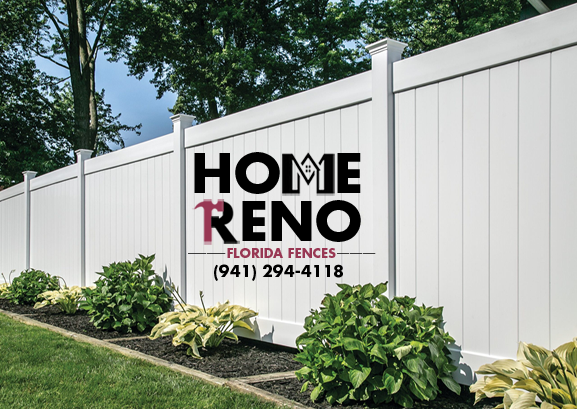Wood vs. Vinyl Privacy Fence: Pros, Cons & Cost Comparison in Dunedin
When considering a privacy fence for your property in Dunedin, wood and vinyl are two popular options, each with its own set of advantages and disadvantages. Let’s compare these materials across several key factors:
Initial Cost
Wood Fences
Wood privacy fences are generally more affordable upfront, with costs ranging from $14 to $35 per linear foot installed. The exact price can vary based on the type of wood and local factors.
Vinyl Fences
Vinyl privacy fences have a higher initial cost, typically between $28 to $55 per linear foot installed. While more expensive initially, vinyl may offer long-term cost benefits.
Durability and Lifespan
Wood Fences
Wood fences typically last 10 to 20 years, though some hardwoods can last up to 50 years with proper care7. They are susceptible to rot, insect damage, and weathering.
Vinyl Fences
Vinyl fences are extremely durable, resistant to weathering, and can last 20 to 30 years or more. They don’t rot, chip, or fade, making them a long-lasting option.
Maintenance
Wood Fences
Wood requires regular maintenance, including staining or painting every few years to prevent weathering and decay1. This ongoing upkeep adds to the long-term cost.
Vinyl Fences
Vinyl fences are low-maintenance, requiring only occasional cleaning with a garden hose or soapy water. They don’t need painting or staining, saving time and money over the years.
Appearance
Wood Fences
Wood offers a natural, classic look that many homeowners prefer. It can be painted or stained in various colors and comes in many styles.
Vinyl Fences
Vinyl fences provide a clean, uniform appearance and come in various colors and styles. However, they lack the natural wood grain texture that some homeowners prefer.
Environmental Considerations
Wood Fences
Wood is a renewable resource and biodegradable. However, treated wood may contain chemicals that can be harmful to the environment.
Vinyl Fences
Vinyl is not biodegradable and can be difficult to dispose of. However, it doesn’t require the use of potentially harmful stains or sealants.
Installation
Wood Fences
Wood fences are generally easier and quicker to install, which can result in lower installation costs.
Vinyl Fences
Vinyl fence installation can be more complex and time-consuming, potentially leading to higher installation costs.
Long-Term Cost Comparison
While wood fences have a lower upfront cost, the ongoing maintenance and potential need for earlier replacement can make them more expensive in the long run. Vinyl fences, despite their higher initial cost, often prove more economical over time due to their durability and low maintenance requirements.
In conclusion, both wood and vinyl privacy fences have their merits for Dunedin homeowners. Wood offers natural beauty and lower upfront costs but requires more maintenance. Vinyl provides durability and low maintenance but at a higher initial investment. Your choice should depend on your budget, aesthetic preferences, and long-term plans for your property.
How does the lifespan of a wood fence compare to a vinyl fence in Dunedin
The lifespan of wood and vinyl fences varies significantly due to their material properties and maintenance requirements.
Wood Fence Lifespan
- Typical Duration: Wood fences generally last between 10 to 20 years with proper maintenance. The lifespan can be shorter for lower-quality woods, such as spruce or pine, which may last around 7 years on average.
- Factors Influencing Longevity: The durability of wood is heavily influenced by factors such as climate, maintenance practices (like staining and sealing), and the quality of the wood used. Exposure to moisture, pests, and harsh weather can accelerate deterioration.
Vinyl Fence Lifespan
- Typical Duration: Vinyl fences are known for their durability, often lasting 20 to 30 years or more. Some high-quality vinyl options can even exceed this range, with some reports indicating lifespans of up to 50 years.
- Durability Factors: Vinyl is resistant to rot, pests, and weathering, which contributes to its longer lifespan. Modern vinyl materials are designed to withstand UV rays and other environmental factors without significant degradation over time.
Summary
In summary, while wood fences can last up to 20 years with diligent care, vinyl fences typically offer a much longer lifespan of 20 to 30 years or more, making them a more durable option overall. The choice between the two should consider not only initial costs but also long-term maintenance and replacement needs.


